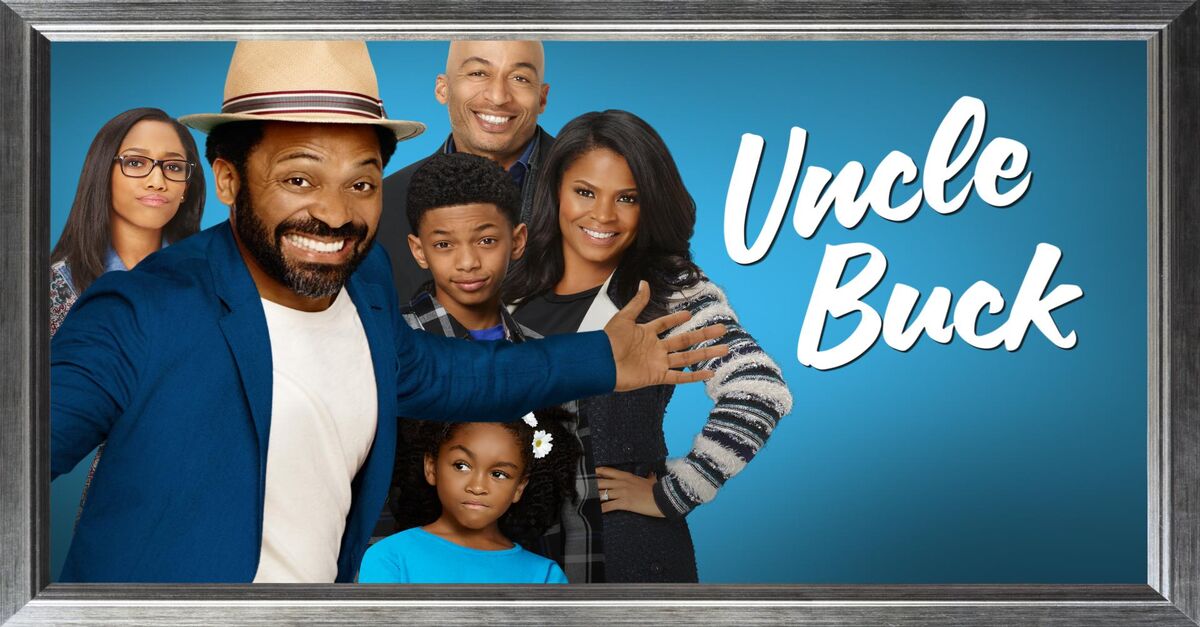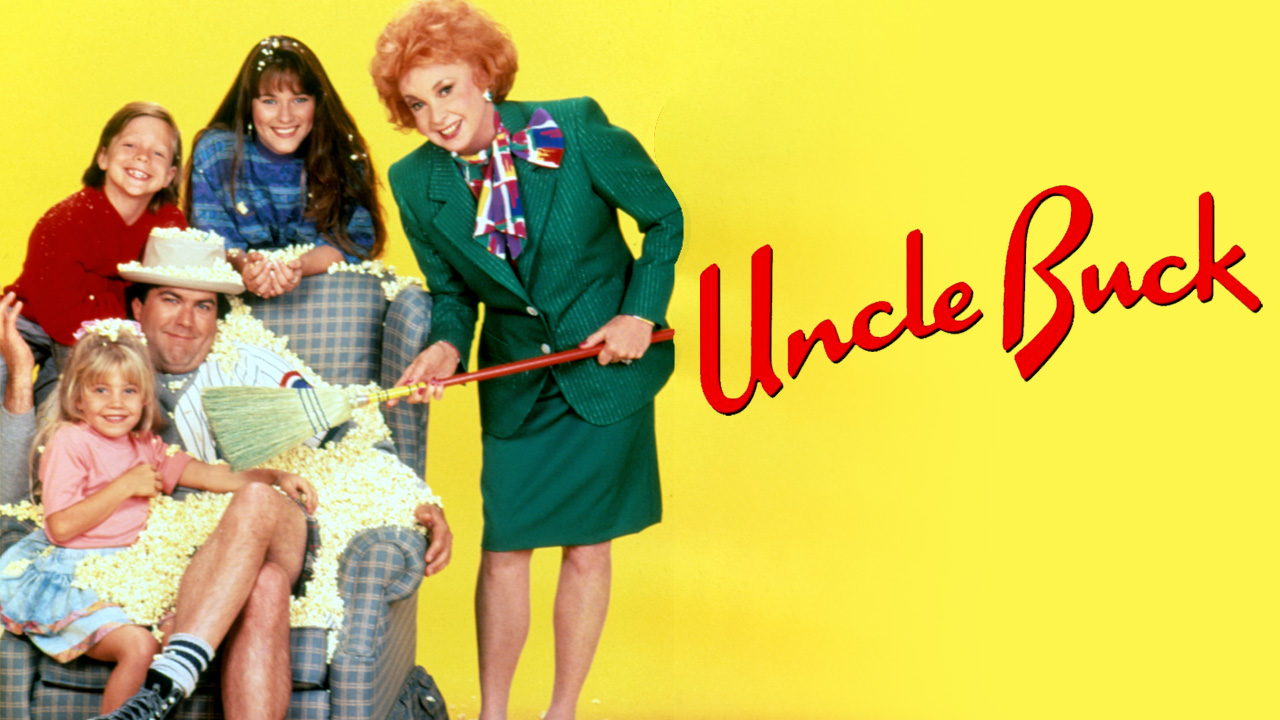The Show’s Premise and Characters

The “Uncle Buck” television series builds upon the foundation laid by the beloved 1989 film, offering a fresh perspective on the dynamics of family and responsibility. The show follows the journey of Buck Russell, a lovable but somewhat irresponsible bachelor, as he navigates the complexities of raising his niece and nephews.
The series explores themes of family, responsibility, and personal growth, providing viewers with a heartwarming and humorous take on the challenges and rewards of raising a family.
The Main Characters and Their Relationships
The main characters in “Uncle Buck” are interconnected through familial bonds, each contributing to the dynamic and often chaotic household.
- Buck Russell: The titular character, Buck is a free-spirited and somewhat immature bachelor who is unexpectedly thrust into the role of guardian to his niece and nephews. Despite his initial reluctance, Buck gradually embraces his newfound responsibilities, learning valuable lessons about love, family, and personal growth along the way.
- Tia Russell: Buck’s niece, Tia is a bright and ambitious teenager navigating the challenges of adolescence. She initially resents Buck’s presence, but eventually comes to appreciate his unconventional methods and his genuine love for her.
- Miles Russell: Buck’s nephew, Miles is a responsible and studious young man who is often tasked with keeping his siblings in line. He initially struggles with Buck’s unorthodox parenting style but ultimately recognizes his uncle’s good intentions.
- Cissy Russell: Buck’s other nephew, Cissy is a mischievous and energetic young boy who constantly tests Buck’s patience. Despite his occasional misbehavior, Cissy is a kind and loving child who deeply cares for his family.
The Key Conflicts and Challenges
The characters in “Uncle Buck” face a variety of challenges as they adjust to their new family dynamic.
- Buck’s struggle to balance his carefree lifestyle with the demands of parenthood: Buck’s initial reluctance to embrace his responsibilities as a guardian creates tension within the family. He must learn to adapt his lifestyle and prioritize the needs of his niece and nephews.
- Tia’s struggle to reconcile her desire for independence with her need for stability: As a teenager, Tia is eager to assert her independence, but she also craves the security and guidance that Buck provides. She must learn to balance her desire for autonomy with the need for support and structure.
- Miles’s struggle to reconcile his sense of responsibility with his desire for a more carefree childhood: Miles is a responsible young man who feels a sense of duty to care for his siblings. However, he also longs for a more relaxed and enjoyable childhood. He must learn to find a balance between his responsibilities and his own personal needs.
- Cissy’s struggle to manage his impulsiveness and learn appropriate behavior: Cissy is a spirited and energetic child, but his impulsiveness often leads him into trouble. He must learn to control his behavior and develop a sense of self-discipline.
Themes and Messages Explored: Uncle Buck Tv Show

The series “Uncle Buck” delves into a variety of themes that resonate with viewers of all ages, exploring the complexities of family relationships, the importance of responsibility, and the journey of personal growth. Through the engaging narratives and relatable characters, the show provides valuable insights into navigating life’s challenges and embracing the joys of human connection.
Family Dynamics, Uncle buck tv show
The core of the series revolves around the intricate dynamics within the extended family. The show explores the unique bonds between siblings, the challenges of raising children, and the power of unconditional love. The characters navigate various conflicts, misunderstandings, and moments of heartwarming connection, showcasing the complexities and rewards of familial relationships.
- Sibling Rivalry: Buck and his brother, Bob, often clash due to their contrasting personalities and approaches to life. Their rivalry provides comedic moments but also highlights the importance of understanding and accepting each other’s flaws. The episode “The Buck Stops Here” exemplifies this theme as Buck struggles to balance his responsibilities as a single parent with his own desires, leading to tension with Bob.
- Parenting Styles: Buck’s unconventional methods of raising his niece and nephews clash with Bob’s more traditional approach. The series explores the different parenting styles and their impact on the children, demonstrating that there is no one right way to raise a family. The episode “The Kids Are Alright” showcases Buck’s unconventional methods of teaching his niece and nephews about responsibility, leading to both humorous and heartwarming moments.
- Family Support: Despite their differences, the family members ultimately support each other through thick and thin. They provide a sense of belonging and offer a safe haven from the challenges of life. The episode “Family Matters” exemplifies this theme as the family rallies around Buck during a personal crisis, demonstrating the importance of familial support.
Responsibility
Throughout the series, Buck faces various situations that test his sense of responsibility. He learns the importance of stepping up, taking ownership of his actions, and making sacrifices for the well-being of others. The show emphasizes the transformative power of responsibility, highlighting how it can lead to personal growth and a deeper understanding of oneself.
- Financial Responsibility: Buck’s struggles to make ends meet and provide for his niece and nephews highlight the challenges of financial responsibility. He learns the importance of budgeting, managing finances, and making tough decisions to ensure the family’s well-being. The episode “Money Talks” explores this theme as Buck faces a financial crisis and must make difficult choices to secure his family’s future.
- Emotional Responsibility: Buck learns to be more emotionally responsible for his actions and their impact on others. He discovers the importance of expressing his feelings, being accountable for his mistakes, and providing emotional support to those around him. The episode “The Heart of the Matter” exemplifies this theme as Buck grapples with his own emotional baggage and learns to be more open and vulnerable with his family.
- Social Responsibility: Buck’s involvement in the community and his willingness to help those in need demonstrate the importance of social responsibility. He learns the value of contributing to society and making a positive impact on the lives of others. The episode “The Good Samaritan” showcases Buck’s commitment to helping others, highlighting the transformative power of compassion and generosity.
Personal Growth
The series follows Buck’s journey of personal growth as he navigates the challenges of adulthood, family life, and self-discovery. He learns valuable life lessons, develops new skills, and ultimately becomes a better version of himself. The show emphasizes the importance of embracing change, learning from mistakes, and striving for personal improvement.
- Self-Awareness: Buck’s encounters with different people and situations lead to a greater understanding of himself. He learns about his strengths and weaknesses, his values and beliefs, and the impact of his actions on others. The episode “The Mirror, Mirror” explores this theme as Buck confronts his own flaws and seeks to make amends for past mistakes.
- Resilience: Buck faces various setbacks and challenges throughout the series, but he perseveres and learns to bounce back from adversity. He develops resilience, adaptability, and a positive outlook on life. The episode “The Comeback Kid” exemplifies this theme as Buck overcomes a personal obstacle and emerges stronger than before.
- Growth Mindset: Buck embraces a growth mindset, recognizing that he can learn and improve throughout his life. He is open to new experiences, willing to take risks, and committed to personal development. The episode “The Student of Life” showcases Buck’s willingness to learn from others and seek out new knowledge, demonstrating the importance of continuous growth.
Critical Reception and Cultural Impact

The reception of “Uncle Buck” was generally positive, with critics praising the show’s humor, heart, and relatable characters. Audiences, particularly those who grew up watching the original film, found the show to be a nostalgic and enjoyable experience. The show’s cultural impact, however, has been relatively limited, with the original film remaining a more significant cultural touchstone.
Reception of the Show
The reception of “Uncle Buck” was generally positive, with critics and audiences alike appreciating the show’s humor, heart, and relatable characters. Many reviewers praised the show’s ability to capture the spirit of the original film while also introducing its own unique elements.
“The show is a delightful throwback to the original film, with a heartwarming story and plenty of laughs along the way.”
“The characters are well-developed and relatable, and the show does a great job of capturing the essence of family life.”
The show’s success was also evident in its viewership ratings. While the show did not achieve the same level of popularity as the original film, it consistently performed well in the ratings, attracting a loyal audience.
Comparison to the Original Film
The show’s reception was often compared to that of the original film. While the show was generally well-received, it did not achieve the same level of critical acclaim or cultural impact as the film. This is likely due to the fact that the film was a groundbreaking comedy that resonated with audiences on a wider level.
The show’s more family-friendly approach also contributed to its more limited cultural impact. The film’s more mature themes and humor made it a more controversial and memorable piece of cinema. The show’s more wholesome tone, while appealing to a broader audience, lacked the same edge and cultural relevance.
Cultural Impact
The show’s cultural impact has been relatively limited compared to the original film. While the show did generate some buzz and nostalgia, it did not achieve the same level of cultural significance. This is likely due to the fact that the film was released during a time of significant cultural change, while the show premiered in a more saturated television landscape.
The show did, however, contribute to the ongoing cultural conversation about family and relationships. The show’s portrayal of a dysfunctional but loving family resonated with many viewers, and its exploration of themes such as responsibility, forgiveness, and second chances contributed to the show’s positive reception.
Uncle buck tv show – Uncle Buck, the heartwarming show, reminds us that family isn’t just about blood, but about the love and support we offer each other. Just like Owen Smith, a comedian who uses his wit to bring joy and connection to his audiences, owen smith comedian reminds us that laughter is a powerful tool for building bridges and strengthening bonds.
In the same way, Uncle Buck teaches us that family is a choice, and that love can be found in the most unexpected places.
Uncle Buck, the heartwarming TV show, reminds us of the importance of family and the bonds that connect us. It’s a reminder that even amidst the chaos of life, love and support can prevail. Just like the show, Joe Rogan’s exploration of the animal kingdom in zookeeper joe rogan highlights the interconnectedness of all living beings.
This understanding, of both our human relationships and our place in the larger ecosystem, is something we can all learn from, just as we can learn from the lessons of Uncle Buck.
